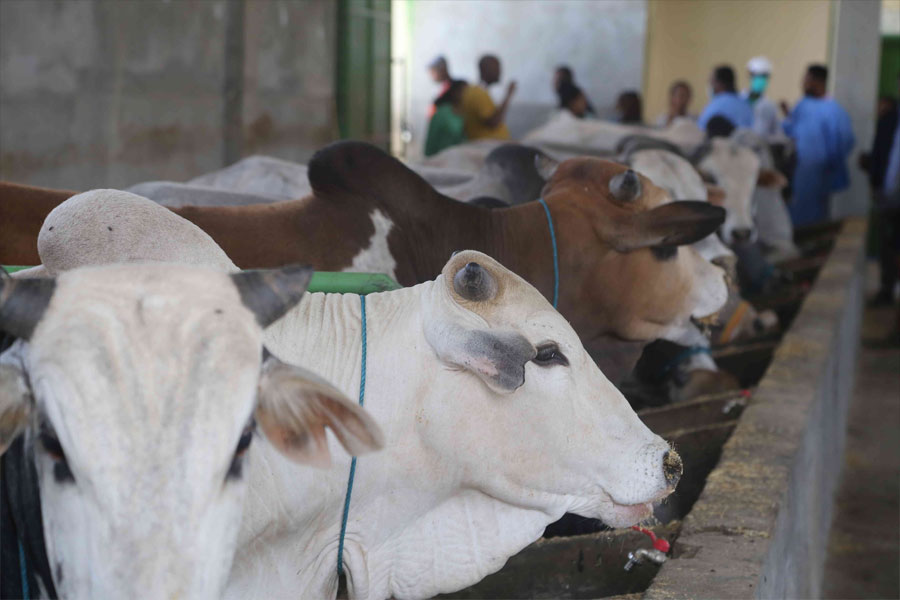
Radar | Feb 26,2022
Jul 10 , 2021
By Kidist Yidnekachew
Oftentimes, when people meet, what they want to know is the person’s profession and level of education. Once I answer, it is possible to see in their faces as they size me up – like I could be any less human if I did not have a master’s degree.
In Ethiopia, we value a person’s educational status more than their emotional maturity and intelligence. We often overlook other things or qualities a person can possess – like having degrees somehow makes up for everything else a person lacks. Sadly, these degree certificates are often a poor measure of a person’s skill. Many of us know highly educated people on paper but who are clueless when it comes to putting their knowledge on the ground.
A couple of years ago, I met an English teacher. He has his master’s degree and was teaching at a private school at the time. Ironically, his English was terrible. When speaking, he used to make many grammatical errors, leaving me feeling sorry for his students. This is not about his lack of English fluency, which is acceptable – it is by no means a measure of success on its own. But it was entirely unfortunate and a disservice to his students that he was the one hired to instruct them in the language that is the lingua franca of the 21st century.
It does not help that we tend to trust people that claim to be educated. Meanwhile, we do not even give the benefit of the doubt to “uneducated” individuals who could be more intelligent, learned and mature than those with degrees. It saddens one to see people that did not get further higher education being labelled as ignorant folks.
A better way of seeing education would be to consider it as a mindset instead of certificates or accolades. Education opens the door to a better understanding of the world around us and to adapt accordingly. This does not include rote learning, memorising enough formulas and sentences to pass an exam and obtain a piece of paper.
The education system is also at fault here. Quality has been sacrificed for the sake of mass-producing higher tertiary graduates. At the same time, it has devalued the importance of liberal arts education or vocational and technical training that form the backbone of a skilled labour force.
“Back in the day, when someone said they were a professional, they knew their subject matter,” some older people say. “Nowadays, it’s just for the credentials.”
I agree. Making matters all the more mind-boggling is how the price of tutoring and educating children has escalated. Private schools have gone on to raise the price of schools without really increasing the quality of education. Sure, international and private schools provide an excellent education that matches their names, but most leave a lot to be desired.
Schooling has become the most costly part of raising children, but this has not grown in proportion to the quality of curriculums or even the teachers. Parents are being swindled, paying higher and higher prices for an education system with marginally poorer returns every other year. With population growth at around 2.6pc, it may well be the government's policy to try and "educate" as many as possible at the expense of the quality of the education.
How can we educate our children and citizens to not rely on certificates but rather on knowledge? How can we create a nation that believes in the importance of true learning even if it means not having credentials?
This is a question that needs to concern us much more than it currently does.
PUBLISHED ON
Jul 10,2021 [ VOL
22 , NO
1106]


Editorial | Jun 08,2024

Viewpoints | Jul 20,2024

Fortune News | Sep 30,2023

Fortune News | Aug 16,2020

Radar | Jun 22,2024

Photo Gallery | 172559 Views | May 06,2019

Photo Gallery | 162788 Views | Apr 26,2019

Photo Gallery | 152606 Views | Oct 06,2021

My Opinion | 136373 Views | Aug 14,2021





Dec 22 , 2024 . By TIZITA SHEWAFERAW
Charged with transforming colossal state-owned enterprises into modern and competitiv...

Aug 18 , 2024 . By AKSAH ITALO
Although predictable Yonas Zerihun's job in the ride-hailing service is not immune to...

Jul 28 , 2024 . By TIZITA SHEWAFERAW
Unhabitual, perhaps too many, Samuel Gebreyohannes, 38, used to occasionally enjoy a couple of beers at breakfast. However, he recently swit...

Jul 13 , 2024 . By AKSAH ITALO
Investors who rely on tractors, trucks, and field vehicles for commuting, transporting commodities, and f...

Oct 4 , 2025
Eyob Tekalegn (PhD) had been in the Governor's chair for only weeks when, on Septembe...

Sep 27 , 2025
Four years into an experiment with “shock therapy” in education, the national moo...

Sep 20 , 2025
Getachew Reda's return to the national stage was always going to stir attention. Once...

Sep 13 , 2025
At its launch in Nairobi two years ago, the Africa Climate Summit was billed as the f...

Oct 5 , 2025 . By NAHOM AYELE
In Meqelle, a name long associated with industrial grit and regional pride is undergo...

Oct 5 , 2025 . By BEZAWIT HULUAGER
The federal government is set to roll out a new "motor vehicle circulation tax" in th...

Oct 5 , 2025 . By NAHOM AYELE
The Bank of Abyssinia is wrestling with the loss of a prime plot of land once leased...

Oct 5 , 2025 . By BEZAWIT HULUAGER
The Customs Commission has introduced new tariffs on a wide range of imported goods i...